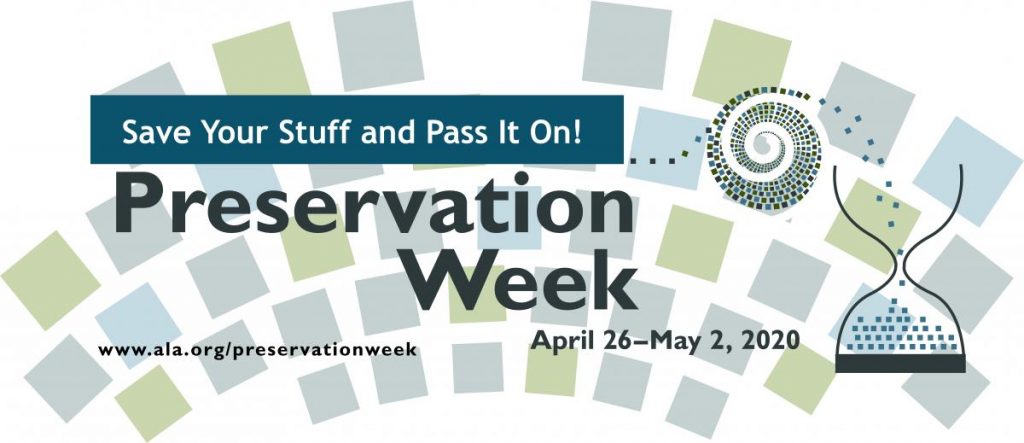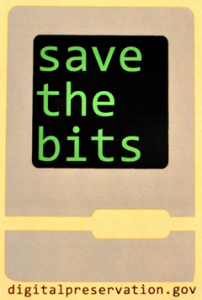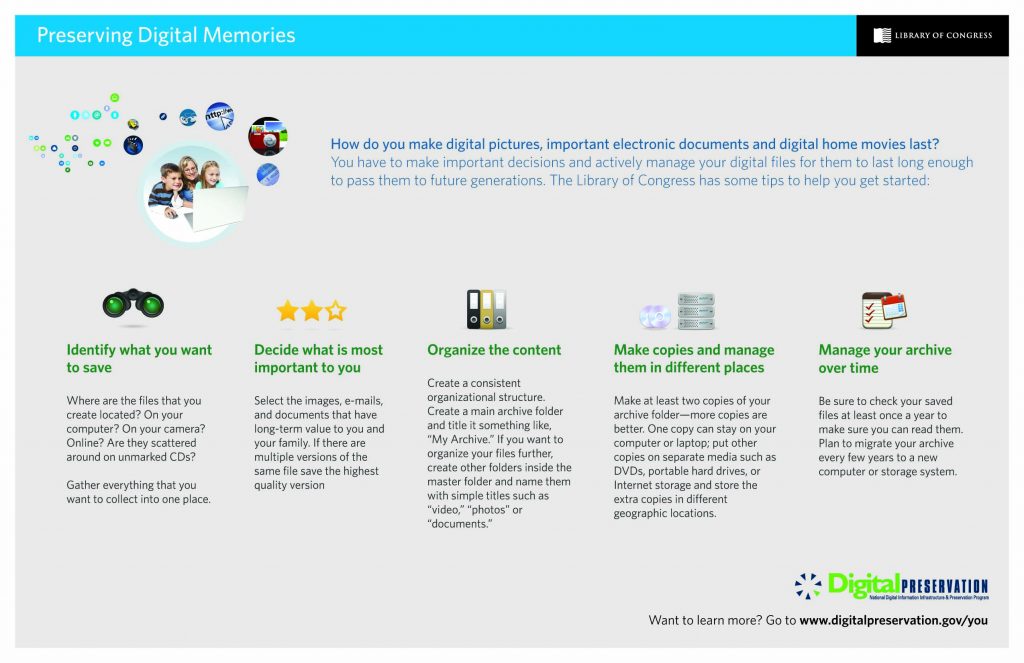Cultural heritage preservation may not seem like an important topic in the midst of a global pandemic but bear with me! The purpose of this post is to inform you about some positive, low- to no-cost actions you can take during your stay-at-home time. You can preserve your heritage while staying out of the way for the benefit of all levels of workers who are directly involved in this healthcare crisis.
This is the week the American Library Association (ALA) promotes activities and shares advice to help individuals preserve the things that are important to them. In short, you can learn how to make decisions and take steps to Save Your Stuff and Pass It On!
The easiest way to approach preservation at any time is to remember that only YOU can decide what’s important to your legacy. Taking that first step is the most important part of a preservation. The basic factors to consider are temperature, relative humidity, light, pests, mold, water leaks and risk of flooding, and handling. ALA makes these factors easy to understand on this Quick Tips handout.
This year’s theme is “Preserving Oral History” and the honorary chair is author, activist and cultural critic Roxane Gay. You are invited to attend these free Preservation Week 2020 webinars
ALA also maintains a page with links to webinars from previous years and a page for how-to videos on working with different materials.
Worried about COVID-19 on being transmitted on paper-based materials? We DO NOT recommend cleaning agents of any kind! As we hear so often, our knowledge about this virus is still evolving, but check out this page for recent developments.
This isn’t all about material culture; an important element in your responsibility to the future is acting now so that objects from your digital life last, too.
Did you know that digital materials can be more difficult to preserve than physical ones? Take this quiz to test your digital preservation know-how.
Digital objects are not durable–threats to them include losing account access (third party providers can disappear at any time) and losing the ability to read file formats and media due to obsolescence. Anybody remember Gold CDs?
Check out the handy tips in the poster below and remember, I’m always up for a conversation about preservation so feel free to contact me if you have questions!



